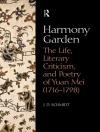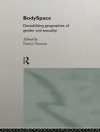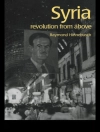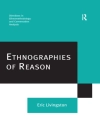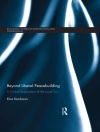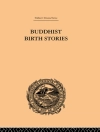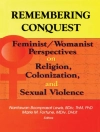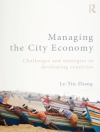‘Anderson, Baxter, and Cissna provide readers with a valuable primer on the concept of dialogue as it relates to specific issues of communication. . . . The list of contributors reads like a Who′s Who in the field of dialogue and communication. . . . Highly recommended.’
-CHOICE
Dialogue: Theorizing Difference in Communication Studies is the first anthology of work on dialogic approaches to communication that offers a state-of-the-art collection of original essays in this emerging research area. Editors Rob Anderson, Leslie A. Baxter, and Kenneth N. Cissna have gathered the most respected scholars in the field to describe their research projects, discuss critical elements of dialogue, and anticipate the evolution of the study of dialogue. With a foreword by Julia T. Wood, contributors include James R. Taylor, Stanley Deetz and Jennifer Simpson, Sheila Mc Namee and John Shotter, and Mark Mc Phail.
The contributors consider a wide range of settings–interpersonal, organizational, societal, and political–and look at the methodology as well as the research underpinning dialogic approaches to the study of communication. The core texts of dialogue studies, including Buber, Gadamer, Habermas, and Bakhtin, set the foundation in Part I, Exploring the Territories of Dialogue . In Part II, Personal Voices in Dialogue , the contributors survey one-on-one, small group, and organization dialogue. Part III, Public Voices in Dialogue , examines the spaces for discourse in more expansive public, intercultural, and mediated settings. The editors pull together disparate implications, connections, and new directions in a dialogue-inspired conclusion.
Readers of Dialogue will be able to frame different influential conceptions of dialogue, establish the concepts′ history in communication studies, and trace both common and unique threads that connect different theorists. This volume is recommended for graduate and advanced undergraduate courses in Communication Theory, Interpersonal Communication, and Organizational Communication.
Table des matières
Index
Foreword: Entering into Dialogue – Julia T. Wood
Introduction: Texts and Contexts of Dialogue – Rob Anderson, Leslie A. Baxter, and Kenneth N. Cissna
PART I: EXPLORING THETERRITORIES OF DIALOGUE
1. Relationships Among Philosphers of Dialogue – John Stewart, Karen E. Zediker, and Laura Black
2. Taking a Communication Perspective on Dialogue – W. Barnett Pearce and Kimberly A. Pearce
3. The Ontological Workings of Dialogue and Acknowledgement – Michael J. Hyde
4. A Dialogic Ethic ‘Between’ Buber and Levinas: A Responsive Ethical ‘I’ – Ronald C. Arnett
5. Dialogue, Creativity, and Change – Sheila Mc Namee and John Shotter
PART II: PERSONAL VOICES IN DIALOGUE
6. Dialogues of Relating – Leslie A. Baxter
7. Dialogue as the Search for Sustainable Organizational Co-Orientation – James R. Taylor
8. Critical Organizational Dialogue: Open Formation and the Demand of ‘Otherness’ – Stanley Deetz and Jennifer Simpson
9. Dialectical Tensions and Dialogic Moments as Pathways to Peak Experiences – H.L. Goodall, Jr. and Peter M. Kellett
10. Double Binds as Structures in Dominance and of Feelings: Problematics of Dialogue – Leonard C. Hawes
PART III: PUBLIC VOICES IN DIALOGUE
11. Public Dialogue and Intellectual History: Hearing Multiple Voices – Kenneth N. Cissna and Rob Anderson
12. Race and the (Im)possibility of Dialogue – Mark Lawrence Mc Phail
13. When is Communication Intercultural? Bakhtin, Staged Performance, and Civic Dialogue – Mary S. Strine
14. Media Studies and the Dialogue of Democracy – John J. Pauly
Conclusion: Voices, Conversation Fragments and a Temporary Conclusion – Rob Anderson, Leslie A. Baxter, and Kenneth N. Cissna
References
A propos de l’auteur
Kenneth N. Cissna is professor of communication at the University of South Florida. He is the author (with Rob Anderson) of Moments of Meeting: Buber, Rogers, and the Potential for Public Dialogue (SUNY, 2002) and The Martin Buber-Carl Rogers Dialogue: A New Transcript with Commentary (SUNY, 1997) as well as a monograph on ‘The Rhetoric of Public Dialogue’ in Communication Research Trends (also with Meghan Clune, 2003). His edited book Applied Communication in the 21st Century (Lawrence Erlbaum, 1995) won the Outstanding Book award from the Applied Communication Division of the National Communication Association. He edited the Journal of Applied Communication Research and the Southern Communication Journal, and is past president of the Florida Communication Association. Currently, he serves as Vice President Elect of the Southern States Communication Association.


